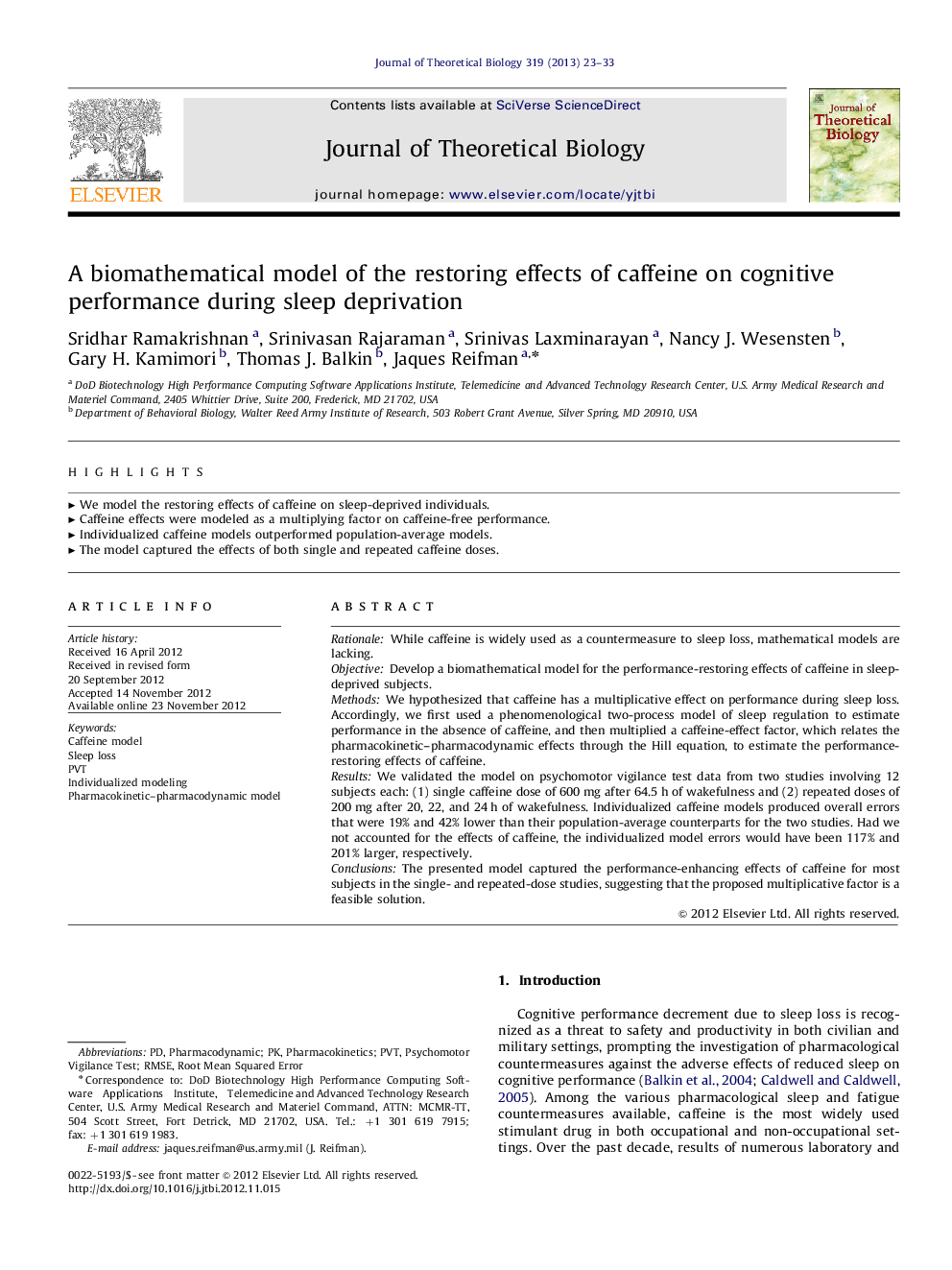| Article ID | Journal | Published Year | Pages | File Type |
|---|---|---|---|---|
| 4496522 | Journal of Theoretical Biology | 2013 | 11 Pages |
RationaleWhile caffeine is widely used as a countermeasure to sleep loss, mathematical models are lacking.ObjectiveDevelop a biomathematical model for the performance-restoring effects of caffeine in sleep-deprived subjects.MethodsWe hypothesized that caffeine has a multiplicative effect on performance during sleep loss. Accordingly, we first used a phenomenological two-process model of sleep regulation to estimate performance in the absence of caffeine, and then multiplied a caffeine-effect factor, which relates the pharmacokinetic–pharmacodynamic effects through the Hill equation, to estimate the performance-restoring effects of caffeine.ResultsWe validated the model on psychomotor vigilance test data from two studies involving 12 subjects each: (1) single caffeine dose of 600 mg after 64.5 h of wakefulness and (2) repeated doses of 200 mg after 20, 22, and 24 h of wakefulness. Individualized caffeine models produced overall errors that were 19% and 42% lower than their population-average counterparts for the two studies. Had we not accounted for the effects of caffeine, the individualized model errors would have been 117% and 201% larger, respectively.ConclusionsThe presented model captured the performance-enhancing effects of caffeine for most subjects in the single- and repeated-dose studies, suggesting that the proposed multiplicative factor is a feasible solution.
► We model the restoring effects of caffeine on sleep-deprived individuals. ► Caffeine effects were modeled as a multiplying factor on caffeine-free performance. ► Individualized caffeine models outperformed population-average models. ► The model captured the effects of both single and repeated caffeine doses.
